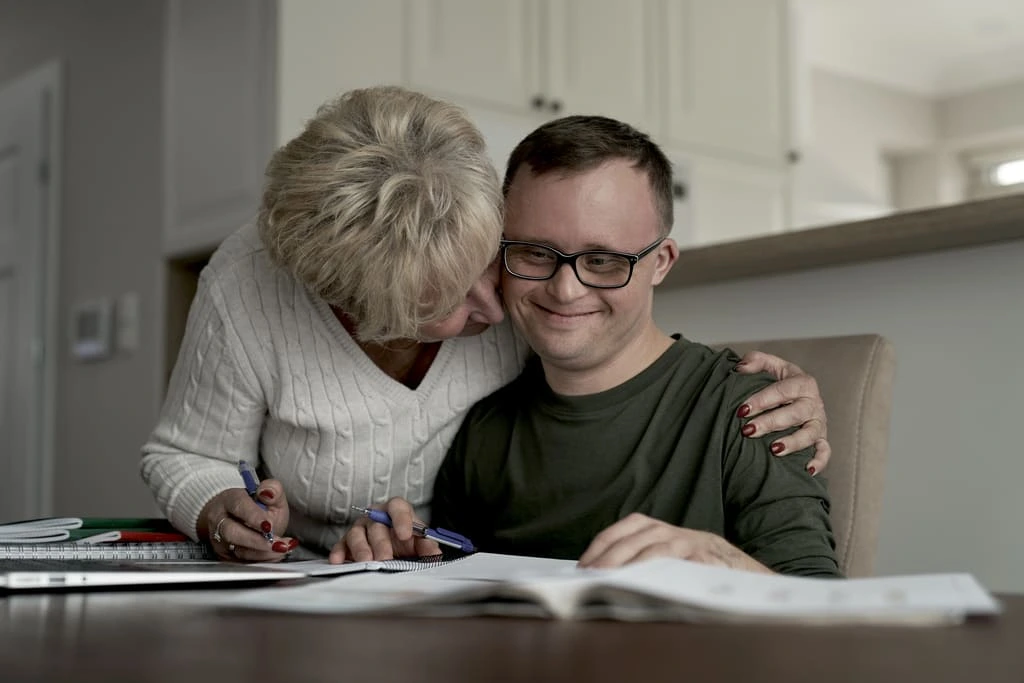The families can expect a collaborative process involving the individual, their support network, and caregivers to create a personalised plan addressing specific needs and preferences.
Importance of Supported Living Services
Supported living services have an essential role in fostering independent living for individuals with learning disabilities, autism, learning difficulties and mental health challenges. These services offer a range of support to facilitate a smooth transition from hospital settings to one’s own home. Supported living homes provide a nurturing environment where residents can build essential life skills, enabling them to lead more fulfilling lives. Through person-centred support and personal care, these services help individuals overcome daily challenges and promote autonomy in a supportive community.

Supported accommodation contributes significantly to the well-being of individuals facing mental health challenges by offering a safe and structured environment. The emphasis on independent living within the framework of a supportive community creates a sense of belonging and stability. Supported living also prioritises residents’ mental and emotional needs, fostering a humanised approach to care. This comprehensive support ensures that individuals with learning disabilities and complex care needs can thrive in their own homes while receiving reliable support to enhance their quality of life.
Additionally, improved self-esteem and a strengthened sense of identity are equally vital. The focus on personalised support recognises the unique needs of each individual, fostering a sense of acceptance and belonging. By emphasising independence and autonomy, the supported living service contributes to breaking down societal stigmas surrounding mental health and learning disabilities, promoting inclusivity and creating a more compassionate and understanding community.
Finding the Right Supported Living Arrangement
Moving into your first independent home is a significant change. Gaining a genuine understanding of the people we support and their move to supported living needs to be done through a smooth transition process. Finding the right supported living accommodation is essential in ensuring the well-being and independence of individuals with learning disabilities, learning difficulties, as well as other complex care needs.
Finding the right supported living arrangement is crucial to ensuring the well-being and independence of individuals with complex care needs. The planning process for supported accommodation involves carefully considering the individual needs of those seeking such services. For young people with learning disabilities, involving the individual and their family in decision-making is needed to create a supportive environment. The aim is to enable individuals to live in their homes, fostering autonomy and dignity.
Supported living services are vital in creating spaces where individuals can thrive, feel safe, and receive support tailored to their unique requirements. By actively involving families and considering each person’s specific needs, the goal is to establish a supported living accommodation that addresses the challenges and promotes a fulfilling and enriching life.

Expectations of Supported Living Services
Supported living services are developed to create a supportive environment for individuals with complex needs to lead fulfilling lives. The core ethos revolves around providing personalised support to people with complex care needs or requiring additional support. A fundamental expectation is the implementation of a service model that prioritises autonomy and independence, ensuring residents have control over their daily lives.
This involves fostering partnerships between service providers and those receiving support to collaboratively tailor solutions that align with the unique goals and preferences of the individuals involved. Sufficient financial resources play a pivotal role in meeting these expectations, guaranteeing enough money to maintain the quality of care, accessible communal areas, and ongoing assistance to enable a sense of community among residents.
In the supported living service, residents are encouraged to actively shape the communal areas, thereby creating spaces that resonate with their preferences and needs. This involvement empowers individuals to have a say in how the service is structured, contributing to a sense of ownership and belonging. Moreover, the collaborative approach between service providers and people utilising the service ensures that the support is dynamic and responsive to evolving needs, reflecting a commitment to fostering a supportive and inclusive living environment.
Preparing for the Transition
Preparing for the transition to supported living is a multifaceted process that involves careful planning and collaboration through reliable care partnerships. Individuals with a learning disability may require unique support systems, and it is crucial to assess their needs fully. This preparation often begins with thoroughly evaluating the individual’s daily living skills, healthcare requirements, and social integration goals. This assessment serves as the foundation for crafting a personalised support plan encompassing support in meal preparation, personal hygiene, and community engagement. Moreover, involving the individual in decision-making empowers them and fosters a sense of autonomy, ensuring that the transition to supported living is a positive experience.
In addition to individualised planning, collaboration with healthcare service providers, caregivers, and family members is essential for a smooth transition. As the transition to supported living unfolds, ongoing evaluation and flexibility in the support structure become vital to address the evolving needs and optimise the individual’s overall well-being. Ultimately, a person-centred and collaborative approach sets the stage for a successful transition to supported living, promoting independence, social inclusion, and a high quality of life.
Support in the Transition Process
This process in the supported living service is crucial in facilitating the smooth integration into a more independent lifestyle. This encompasses emotional and social support to help individuals navigate the challenges associated with the transition. Supportive services may include:
Personalised guidance in developing daily living skills
Establishing social connections
Fostering a sense of autonomy
The transition process in supported living typically involves several key steps.
An Assessment Phase
The aim is to identify the individuals’ personal goals, needs, the people they love, care history, daily routines and current support.
Developing a Transition Plan
The key aim in this phase is to meet the individual and their family so we can co-design a detailed transition plan outlining the need for tailored support.
Implementation of the Transition Plan
This phase involves:
Assisting with various aspects, such as finding suitable accommodation
Supporting individuals in learning necessary life skills
Establishing a support network
Adequate Communication and Ongoing Adjustments to the Support Plan
Many care recipients have spent long periods in hospitals; therefore, challenges may arise during the transition. These can manifest in fear of change, adapting to a new environment, and possible social isolation. Addressing these challenges can ensure a successful transition and continued well-being of individuals in supported living.
Personalised Care Plans
The multifaceted approach personalised care plan adopts enables individuals to thrive in their homes and within the communal areas where they will be able to bond with like-minded individuals. Making new friends and strengthening the family bond create an environment that supports an individual’s autonomy through:
Shared decision-making processes involve people actively in determining their goals, fostering a collaborative relationship between the care providers and the individuals.
Support in self-management equips individuals with tools and skills for self-care and promoting independence.
Support in making choices that allow individuals to make decisions about their daily lives, fostering a sense of agency and dignity.
Maintaining Independence and Quality of Life
In supported living, preserving independence and enhancing the quality of life revolves around cultivating an environment that empowers individuals to thrive with the right balance of support. This approach ensures that people receive the support necessary to navigate daily challenges while preserving their autonomy. By placing emphasis on personal choice, dignity, and community engagement, supported living not only aids in managing tasks but also fosters a sense of belonging and fulfilment.
The Role of Caregivers in Enhancing Quality of Life
By establishing meaningful connections and understanding each person’s unique preferences, interests, and challenges, caregivers create a personalised approach to support. Through activities that promote social engagement, skill development, and emotional support, caregivers contribute significantly to the overall quality of life within supported living settings. Their compassionate and person-centred care enables individuals to lead fulfilling lives, promoting a sense of autonomy, dignity, and belonging.
Furthermore, caregivers advocate for the individuals, ensuring their voices are heard and their choices are respected as citizens. In collaborative efforts with healthcare professionals, caregivers contribute to developing and implementing individualised care plans, addressing both urgent needs and long-term goals.
Supported Living Services with Leaf Complex Care in Birmingham
It can be challenging for people to adjust to living alone in their own homes after spending a significant amount of time in a hospital. At Leaf Complex Care, we know that this shift can sometimes be stressful and cause anxiety despite its positive side. We support individuals with learning disabilities and complex care needs to transition successfully, and we tailor the moving-in process while providing continuous care and support.
Contact us today or contact our Birmingham office, and let us get involved in creating a safe space and accommodation tailored to your needs and aspirations.


















